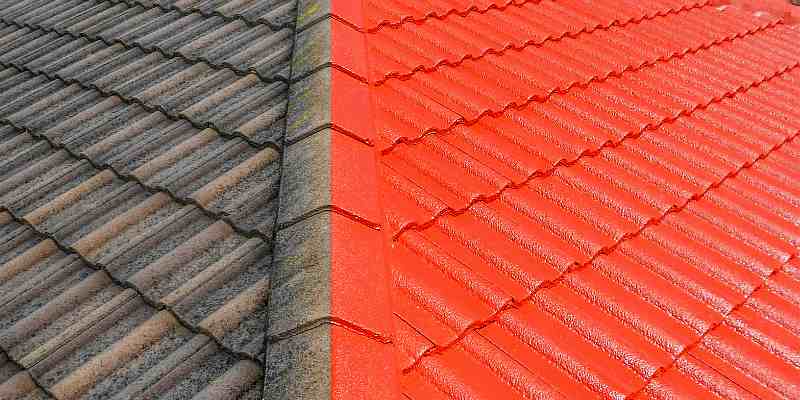What are the advantages in using roof coating for commercial buildings? Our guide outlines the protection, energy and environmental benefits.
What to consider in a roof replacement
Roofs are robust and durable by design. Acting as the first line of defence against natural elements, your property’s roof is designed to fend off water and temperature damage while contributing significantly to the insulation of your property. While most roofs last for multiple decades, if not maintained properly, their lifespan can be much shorter and filled with issues.
Tip: Roof Insulation grants are available under the UK government’s ECO scheme.
The advantages of roof coating for commercial buildings
One of the most popular ways to extend the lifespan and boost the durability and weather-resistant properties of a roofing system is a commercial roof coating. Confused about what roof coating is? Here’s the answer:
What Is Roof Coating?
The practice of coating roofs, as the name suggests, involves adding an additional layer of protection on your roof. Commonly, asphalt, silicone, wood, and polyurethane materials are used to coat roofs. More recently, roofs have also been known to be coated with a layer of an acrylic coating.
Roof coating is most commonly used to protect single membrane roofs, built-up roofs, and modified bitumen roofs. These are a few advantages of coating your roof with protective material:
Improved Aesthetic Appeal
Roof coating is usually done in the form of a monolithic coat over the different components of your roof like the roof surface, pipes, and flashes. After the coating has been applied, it melds together and joins, resulting in a seamless coat all over the surface of your roof.
This seamless effect delivers protection (discussed in the following sections), but also offers great aesthetic value by giving your roof a neat and clean look.
Improved Protection
As mentioned earlier, offering more protection against nature’s elements is the primary function of a roof coating.
With its monolithic properties, a roof coating can increase your roof’s ability to fend off water damage. Similarly, by choosing flexible roof coating that expands and contracts with the rest of your roofing material, you will be able to provide your roof (and your building) with efficient protection against the changes in temperature.
Improved Energy Efficiency
Another property of roof coating material is that it is excellent at reflecting the heat that other roofing materials usually absorb. This reflective property of roof coating makes it easier for your HVAC systems to keep the interior temperature of your building moderated.
When your HVAC systems don’t have to work hard, they are able to make efficient use of energy to maintain a comfortable temperature inside your commercial property. This efficiency becomes apparent in the form of lower energy bills.
Another benefit of the reflective property of roof coating is the prolonged life of your HVAC appliances. When your appliances don’t have to work extra hard to maintain the interior temperature, they are less likely to face mechanical and technical problems, you will only have to get periodic commercial HVAC maintenance.
Environment Friendly
A roof coating can potentially save a failing roofing system. In other words, the water sealing and reflective capabilities of roof coating can delay the need for a roof replacement in many cases.
This doesn’t just translate into savings amounting to several thousand dollars, it is also good for the environment. With fewer roofs being replaced, there is less debris that ends up in a landfill. For roofs that are relatively new, covering them with a protective roof coating and refreshing the coating every 10 years or so can help property owners extend the life of their property’s roof.
Conclusion
The best thing about roof coating is that you can have the roof coating applied to your property without disturbing the business or businesses operating inside your property. The installation process makes minimal noise and leaves behind virtually no odor that will disrupt the day to day operations of the businesses housed within your property.
 Gerhardt Richter is a writer and a trainer at trade technical colleges, specializing in carpentry, plumbing, mechanics and construction.
Gerhardt Richter is a writer and a trainer at trade technical colleges, specializing in carpentry, plumbing, mechanics and construction.




